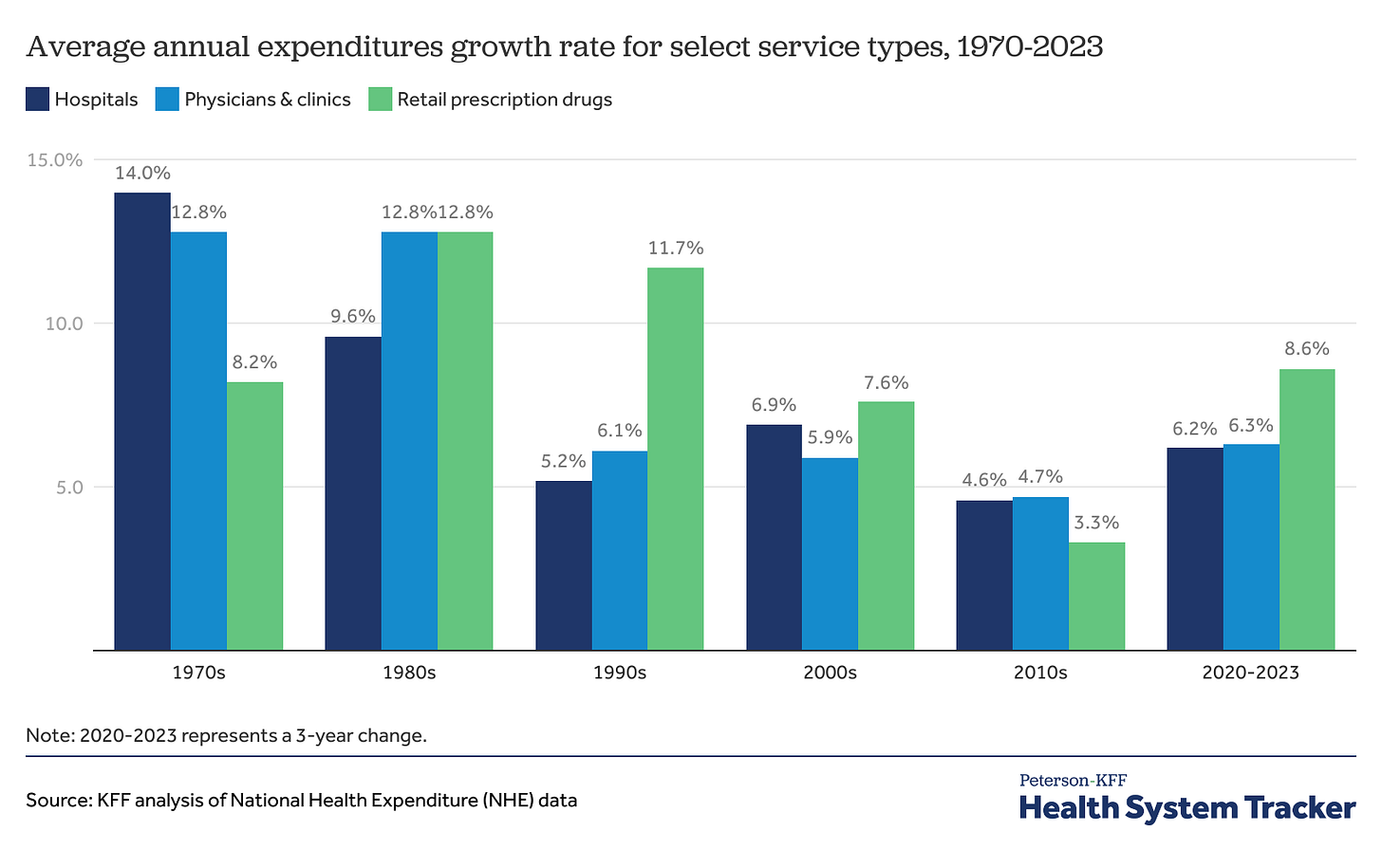Americans prefer action over deliberation in their politicians. Even before taking office, President-Elect Trump has used the threats of economic, military, and political action to wrangle concessions on foreign and domestic issues. In contrast, President Biden, who spent 36 years in the Senate, adopted that institution’s slower approach to change, earning disfavor from an American public that prefers a clear, public vision of the future. Trump’s threats are unnecessary to achieve his ends, but they speak to US voters’ concerns about immigration, the unsustainable federal budget, and national security threats from China and Russia.
Immigration, Mexico, and Canada. Fifty-five percent of Americans would like to see immigration reduced. Trump’s threats to increase tariffs that affect Mexico and Canada resulted in immediate commitment from both countries to aid in immigration enforcement. Increasing tariffs would undermine his own USMCA trade agreement and his pledges to control inflation, but he was willing to risk a downside to take action on this issue. While Mexican immigrants constitute the largest single group of those without authorization, in fact since 2017 they have become a minority in the overall population of undocumented immigrants, reflecting improved economic conditions in Mexico. The most effective means of controlling immigration of undocumented people through Mexico is enforcing laws at the southern Mexican border, where immigrants from other countries join the path to the US. Similarly, while immigrant flows through Canada are significantly lower, Canada could do more to prevent asylees in Canada from crossing into the US to claim asylum here. While both Canada and Mexico reacted negatively to the threat of tariffs, they both agreed to the relatively easy immigrations concessions sought by Trump.
Balanced Budget. Eighty percent of voters support a constitutional amendment that would require a balanced budget within 10 years. While political insiders generally view Trump’s agitation against the pre-Christmas continuing resolution as a loss, the public generally views him as having succeeded in his insistence on changes to it. Trump’s push to repeal debt limits and the Impoundment Control Act of 1974 are clear threats to Congress’s power over the budget. He is unlikely to get those specific concessions, but the Republican Party’s control of both chambers will certainly result in gains for Trump’s budget priorities and his popularity with voters who care about a balanced budget.
Panama, Greenland, and the Conflicts with Russia and China. Two-thirds of Americans see China or Russia as the greatest threat to the United States. A strong majority of Republicans, a plurality of independent voters, and a significant minority of Democrats feel that the US, and their own lives, are threatened by international actors. President-elect Trump’s threats to take territory in the US and Panama demonstrate an awareness of this belief.
While the US is unlikely to invade Nuuk and Panama City anytime soon, the US could use the threat of action to promote greater national security, most likely in the form of increased military basing in those countries to address threats from Russia and China to shipping. Both Russia and China are attempting to increase their numbers of modern submarines and their trade through the Arctic. Increased basing in Greenland would remedy a shortfall in sub detection capacity and potentially allow for greater protection (or control) of Arctic shipping. With Chinese companies controlling two ports near the Panama Canal, increased basing there would protect US access to the Canal and possibly allow the US to close it to Chinese shipping. In addition to a trade advantage, this would give the US greater leverage over Venezuela’s autocratic government, which is propped up by China and which drives undocumented immigration to the US. To further cut undocumented immigration, US military involvement in Panama could extend to reducing migrant flows through the Darien Gap. Few Americans want to invade Panama or Greenland, but they will be happy to reduce the threats from China, Russia, and undocumented immigration.
Conclusion. While Americans have never loved Trump’s bluster as much as he believes, they do appreciate his willingness to “upset the applecart” to prioritize their interests over those of government insiders who prefer a slower approach. Conversely, Biden’s unwillingness to shake up US and international politics left voters cold and likely doomed Vice President Harris’s candidacy. Trump will not succeed in enacting higher tariffs with Mexico and Canada, balancing the budget, or reclaiming the Panama Canal, but he will likely make progress on immigration enforcement, the budget deficit, and reducing Chinese influence in the world. Voters will see this as success. The future success of the Democratic Party will depend on its willingness to provide a clearer, if less bombastic, vision of the future that addresses these popular priorities, rather than fighting them.
Other News
The Cost of US Healthcare. One major driver of the federal deficit has been the expansion of health insurance without a corresponding increase in revenue or decrease in cost. It’s time to take a long-overdue look at controlling costs.
While the growth in prescription drug costs is the tradition target and certainly a reasonable one, the biggest disparities in healthcare spending in the US versus other developed countries are actually in the cost of inpatient and outpatient care. This isn’t because we’re getting better service - the life expectancy in every comparator country is higher than in the US. Further, the biggest cost increases within this category aren’t coming from government programs, but rather from private insurance.
There’s a fairly simple solution - one price for each healthcare service in each market and for pharmaceuticals in every market. Can you think of another product where the price of the same service depends so much on who is paying? Yes, this would increase expenditures for Medicaid, as it only pays about 80% of the Medicare rate, which itself is 100-102% of the cost of delivering the service. However, it would result in a 50-100% cut in the prices paid by private insurance. As the number of people covered by private insurance is 3.5 times as large as the Medicaid population, assuming similar usage, roughly a 6% tax on private insurance would eliminate the provider payment disparity. In fairness, this does result in a “new tax”, but, given the enormous cost savings to private insurance, most would happily pay it. For those of you who prefer a single payer system, a single price system is a first step. For those of you who prefer a private system, making the subsidy from private insurance to the Medicaid population more transparent starts the conversation on how to provide care for the poor more efficiently than our current system.
Who loses? Insurers would likely shed administrative staff as they would no longer have to negotiate prices. Pharmaceutical companies and pharmacy benefit managers would be subject to prices negotiated by a single party - not necessarily the government, but presumably under government supervision. Finally, hospitals and providers would have to do a better job in justifying the cost of their services to the negotiator, whether that negotiator is a public or a private entity.
Does it work? Yep. In Germany, France, and Japan, structured single price negotiations work just fine in controlling costs, even in fee-for-service systems.
Keep Letters from a Recovering Politician Free
As always, the best thing you can do to support this column is to share it with people who might be interested. I do not have a paid plan because I want folks to be able to access it without worrying about money. If you’d like to leave me a tip to show your appreciation, you can click on the “Buy Me a Coffee” button below.










Yes, I'll also buy you a cup of coffee at Seize the Cafe as I want to hear how a democrat can pick a few themes the general public wants and send the message that they are the one who can do the job best.
Thank you, Marty. I appreciate your cool headed, analytical, and solutions driven writing. And I just realized you are my neighbor (I'm in the Amazon neighborhood) I literally want to buy you a cup of coffee and have a meaningful discussion about our state of affairs. For my sanity. Maybe I'll catch you at Seize the Cafe some day.